Kabale
Kabale is a city built among the hills

Kabale has a cool climate, which, combined with frequent rainfall, creates its lush green landscape. It is located near one of Rwanda’s border crossings, in the southwest of Uganda, and is the capital of a district with a commercial center.
One of the unfortunate records held by this city is the number of street children—children who have literally fled their homes and now live on the streets. They come from various villages and sub-counties in the region, having fled due to extreme poverty, neglect, and/or bad influences. They end up in the nearest large city in search of refuge and a chance at a better life. Many of them eventually find their way to the enormous capital, Kampala, with its 10 million residents, only to fade into the anonymity and brutality of street life. In terms of numbers, street children from Kabale rank second in Kampala, after the children from Napak.
The street children of Kabale mostly live around the city’s garbage dumps. The smell and desolate environment are hard to describe—what’s worse is that they seem to get used to it. In these places, they search for anything they can sell in order to survive. They live in groups and escape their harsh reality by sniffing glue, smoking marijuana, and using other cheap drugs. These drugs are referred to as “the street’s comforting blanket”, providing temporary escape from the cold nights and the abuse of street life. At the same time, the drugs fuel violence and crime, further deepening the gang culture.
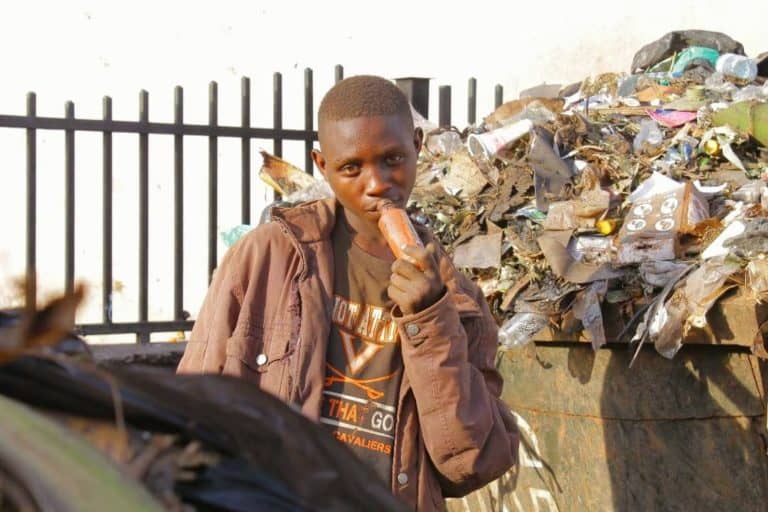
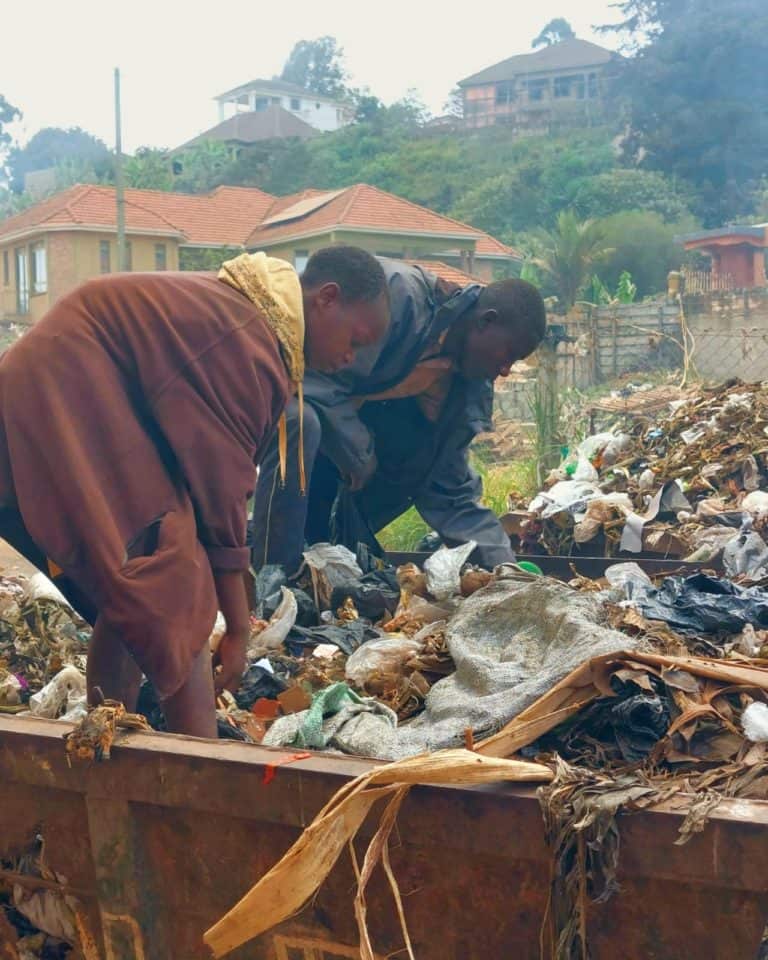
After 12 years of serving as the only street children organization in Kisoro, Koinonia saw a growing need to also reach out to the street children of Kabale—even though other organizations were already active there.
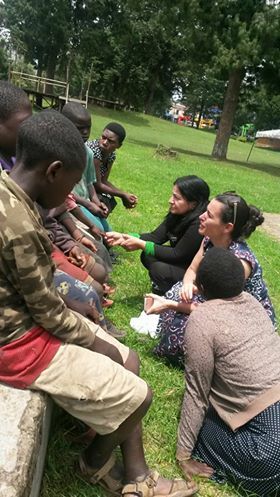
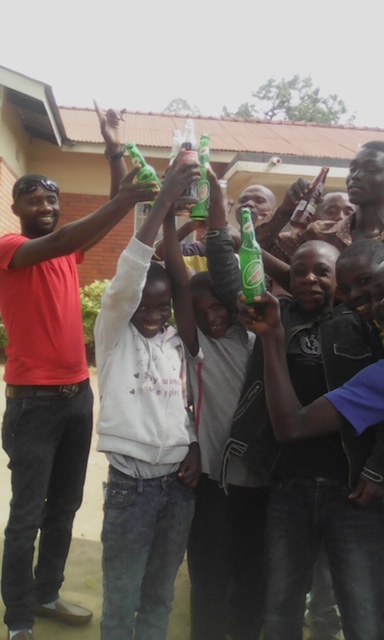
In December 2012, the local Koinonia team started a weekly meal distribution program in the courtyard of their local partner, Kabale Full Gospel Church. This initiative quickly grew into a daily feeding program.
This gathering place for the street children is very important. It gives the team the opportunity and time to get to know the children better and to understand, through conversation, what drove them to the streets. It is also the first step toward helping them leave street life behind. The beating heart of this feeding program is reading the Bible and praying together. It’s amazing how children of all ages understand this hopeful language, no matter how stormy their lives have been. Even if their parents have failed to raise them, God loves them and wants to help them!
The children in our home range in age from 5 to 16 years, with older youth continuing to receive follow-up care outside the rehabilitation home.
This project provides:
• A weekly meal for the street children of Kabale
• Shelter and education for children taken in
• Access to primary, secondary, or vocational education for each child under Koinonia’s care
• Social services for the family and family reunification when possible
• Ongoing support, guidance, and follow-up for children placed with families
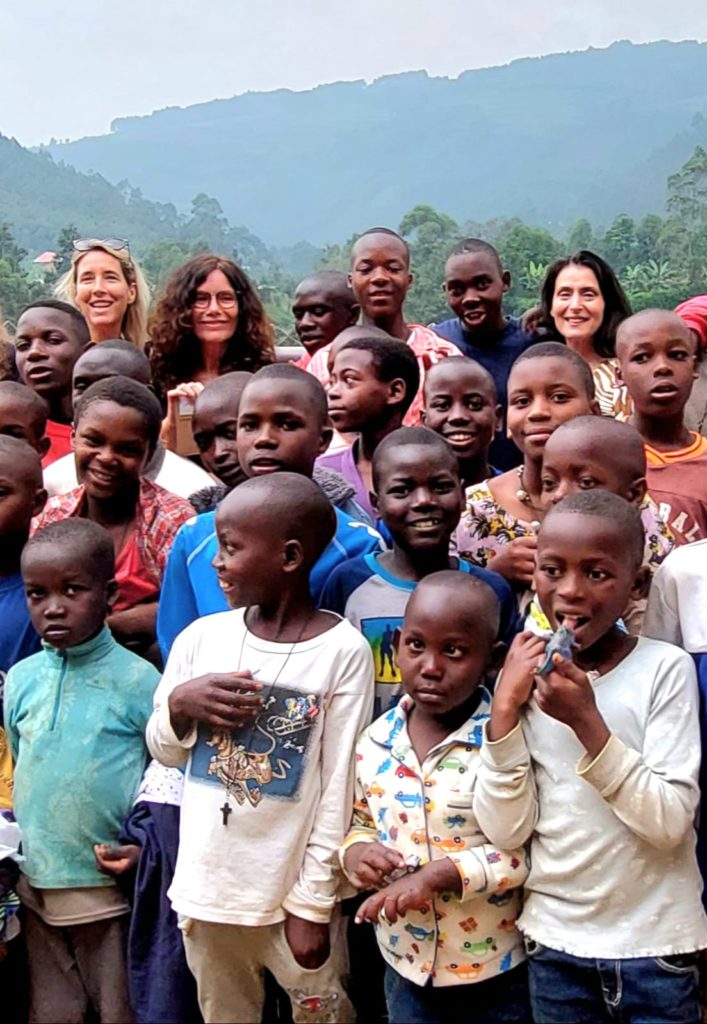
BE PART OF THE SOLUTION SEE HOW YOU CAN HELP TODAY!
Read more about our tailored training program or our other projects:
– Kabale
– Wakiso-Kampala
– Napak-Noorden